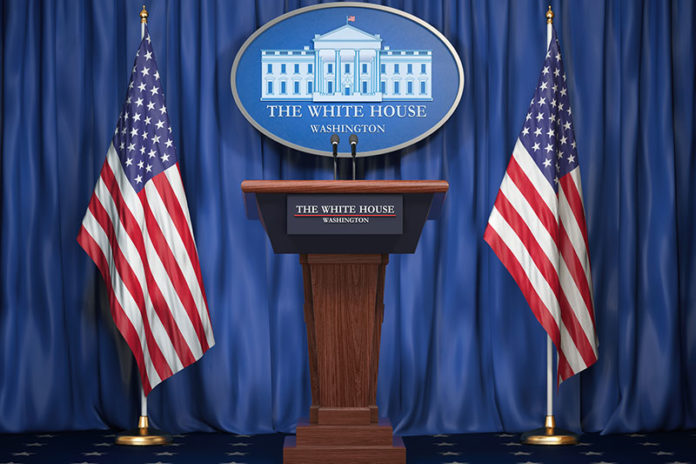Anyone who spends enough time in America’s “swamp” realizes a simple truth: politicians are just as beholden to incentives as anyone else. Re-election is no walk in the park, and it’s little wonder that President Trump would rather just extend his term than win voters’ support for a second term. Absent the complete upending of democracy, lawmakers and executives do everything and anything in their power to secure re-election, often at the expense of future taxpayers. Even “outsiders” recognize the appeal of bailouts and lavish spending to try to ward off recessions and buy constituent support. President Trump, who is reportedly worried about a possible downturn in the near future, is just the latest manifestation of this long-standing problem.
These political incentives can be held in check, but only if the American people have the willpower — and imagination — to fundamentally rethink the contours of the presidency. A one term, six-year stint would go a long way toward curbing the corrosive politics driving red-ink and and give the president enough time to implement his agenda.
It doesn’t take long after a new president strolls into town for advisors and talking-heads to start whispering about re-election. After about the two-year mark, the pressure intensifies to kick the economy into high-gear through the next election day. Trump is evidently feeling the heat, having recently agreed to a bloated spending “deal” that guarantees trillion-dollar deficits. Leaders are well-aware that they can temporarily put the economy on uppers by breaking the bank, even if the long-term consequences of such large debt loads are terrible.
This doesn’t have to take the form of spending. President Trump is currently mulling a (likely temporary) payroll tax cut, more of a gimmick than a comprehensive tax overhaul. It seems that the closer we get to the election, the less serious or long-lasting administration proposals are. In this regard, Trump is hardly an aberration. In 1992, then-President George H.W. Bush was desperate to get the economy back on track and secure reelection. He tinkered around with withholding schedules, which resulted in more money in people’s pockets before Uncle Sam recollected it a year later.
Maybe if executives faced less pressure to “deliver” before an election, there’d be less governing by gimmickry. Presidents do seem to push and agree to more sensible policies after they have been re-elected. After his landslide shellacking of Walter Mondale in 1986, President Ronald Reagan signed into law the most comprehensive tax overhaul in American history, reducing 16 brackets to 2, slashing the top marginal rate from 50 percent to 28 percent, and wiping the slate clean of special-interest perks. Second-term Clinton agreed to a capital gains tax cut (after raising taxes his first term), and as a result, Roth IRAs were born, which have helped millions of workers grow their retirement accounts tax-deferred. Even President Obama (sort of) came around after 2012, with proposed spending reductions that reversed some of the damage wrought by the Stimulus and Affordable Care Act (aka “Obamacare”).
Seemingly, presidents feel insulated enough from politics after reelection to pursue sensible policies with the long-run in mind. By this logic, kiboshing presidential re-election campaigns altogether would create a better governing environment. Which brings us to one idea the Confederacy had that was worthwhile: the one-term, six-year presidency.
It’s less clear that six years is preferable to four, but the president is a tough job to get a handle on. Executives can attest that the learning curve is steep, and building Congressional partnerships takes years. Six years affords the president enough time to learn on the job, while still allowing the American people at least one “course correction” per decade. But the biggest course correction would be implementing the one-term policy in the first place, which would require amending the Constitution. This would most easily be accomplished via a two-thirds majority in the House and Senate.
But a critical mass of lawmakers won’t rally around the “one-term amendment” absent the support of the people. While no one has discussed presidential term-limits in a very long time, Americans do seem to like the idea of further term limits for most institutions. It would take considerable effort from activists in moving voters past merely liking the idea of term limits to demanding change regarding the presidency. And sure, it might sound a little wild. But, all the same, it’d be nice to have seen the last two-term president.






























